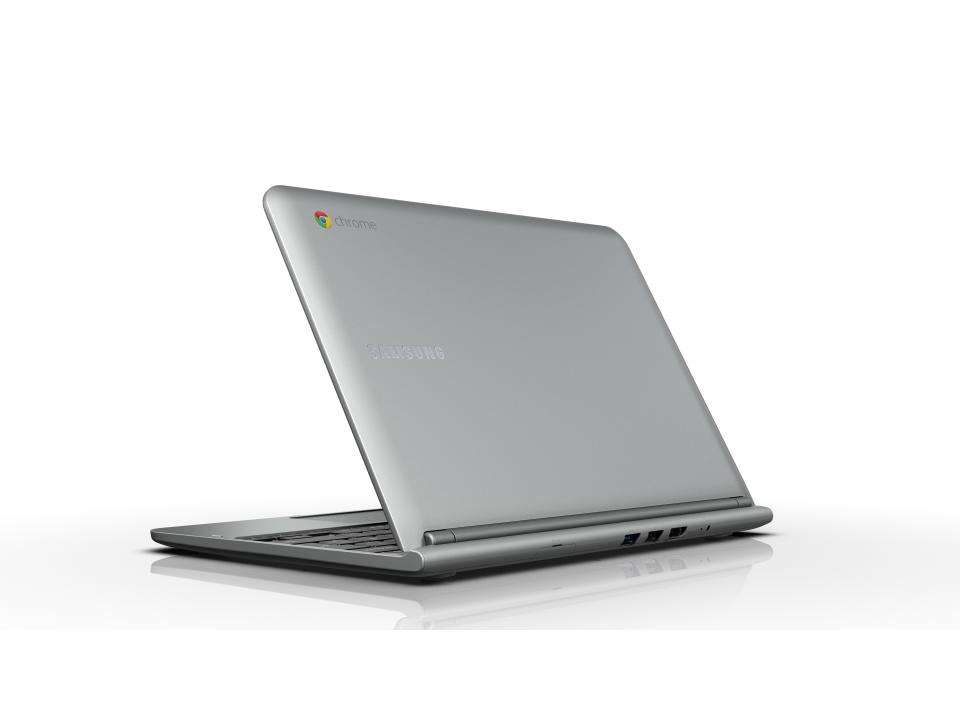Google brings Chromebooks to Singapore


SINGAPORE--Google has launched Chromebooks by partners Samsung, Hewlett-Packard (HP) and Acer in Singapore and believes it can take on the technology market with its price and easy maintenance.
According to Caesar Sengupta, product management director of Chrome OS at Google, Singapore had been chosen as one of the first few markets, behind Malaysia, for the Chromebook launch due to its widespread Internet connectivity and security consciousness of the people living here.
Speaking to ZDNet Asia recently, Sengupta said Google's Chromebook hopes to win users over from other popular laptops and thin client devices in the country based on its low price and easy maintenance.
The Samsung and HP Chromebooks are both priced at S$449 (US$356.07), while Acer's is priced at S$369 (US$292.56), he revealed.
Besides price, consumers will also experience easy usage and maintenance with a Chromebook, such as quick bootup time and having security updates implemented in the background without users having to "trouble themselves". These aspects compare positively to an Ultrabook, for example, he said.
The Google executive also noted Chromebooks sit in between tablets and laptops, catering to the group of consumers who want the "best of both worlds" while surfing the Internet. In other words, having the portability and computing speed of a tablet and the note-taking ability of a laptop.
"We took the best features of the Web and brought them to computing," Sangupta said. "There are certain things about computing that just drive you up the wall such as the booting and installation of security updates. Nobody wants to be an IT administrator to their own laptop anymore."
Sangupta acknowledged there are security issues associated with cloud computing, especially when data on the Chromebook is backed up to the Web giant's online storage service Google Drive. But he asserted it is "generally safer" than users leaving data on their devices.
He likened storing data on cloud services such as Google Drive to putting money in a bank, which the company "takes care of very well". After all, if a personal computer is stolen, all the data is gone. If the data is in the cloud, though, nobody can access it except the user, he explained.
Security, of course, is only ensured when users carefully discern what data they are willing to store in the cloud, he pointed out, adding Google has a team of more than 250 full-time security engineers to maintain the security of user data and Google's infrastructure.
Chromebooks to gain traction in S'pore schools
In terms of demand, Sengupta expects the Chromebook devices to be widely adopted by Singapore's schools.
Education has transformed over the past few years, with the rise of one-on-one computing where students are issued a laptop to enable learning to take place outside the traditional computer lab, Sengupta explained.
Students, too, have tight budgets when it comes to buying laptops for school, so the cheaper Chromebook option helps reduce upfront as well as maintenance costs, he noted.
Chromebooks have already been widely adopted in 2,000 schools around the world as of February 2013, Sengupta pointed out. Here in Asia, the Malaysian government adopted Google Apps and Chromebooks for education in April as part of the country's plan to reform its education system through Web usage, he added.
According to the executive, there are some Singapore schools that have started piloting Chromebooks and Google will be in discussions with more schools and Singapore's Ministry of Education (MOE) to roll out these devices nationwide.
Chromebook remains a "niche play"
However, Clement Teo, senior analyst at Forrester Research, told ZDNet the Chromebook will be a "niche play" in a saturated market with many different laptops of a range of price points and capabilities. Even though the device will appeal to Web-centric users, many notebooks and laptops can already do the same without the need for the Chrome operating system, Teo explained.
Teo added he was not certain an MOE-driven initiative could expand the reach of Chromebooks and Chrome OS outside of schools, since majority of users are "weaned on a diet of Windows and Mac OS".
"The attraction is the price points of Chromebooks, but this will have to be weighed against the type of applications students use," Teo said. "For example, should Chromebooks default to running Microsoft Office [due to school requirements], it may not make sense [for students] to switch to Chromebooks as Ultrabooks and laptops could fill the same function."
Two Singaporeans ZDNet spoke to were also hesitant about getting Chromebooks due to the lack of familiar applications.
Lim Kian Hean, a financial researcher, found the price "quite cheap" but was concerned whether it could perform tasks such as checking his e-mail, Microsoft Office and Excel which he would require for work.
Engineer Shawn Lee, too, said the Chrome OS is still too young to have enough necessary applications. Even though the Chromebook is good for word processing and browsing the Web, the same functions can be done with a tablet and bluetooth keyboard, Lee added.
"The price is also not value-for-money for what the Chromebook can do," he said. "I'd rather spend a little more and get an Ultrabook, [which has] the same portability, similar boot time and greater versatility."